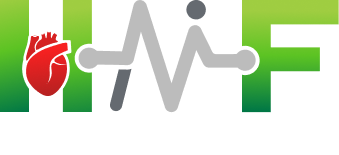Heart Failure -The Challenge of Silent Symptoms

Heart failure doesn’t always announce itself with loud warning signs. Sometimes, the symptoms are so quiet, so subtle, they’re easy to overlook—until it’s too late. HAIF’s revolutionary HFP is stepping in to change that by identifying these silent symptoms early and saving lives.
The Silent Symptoms We Ignore
Picture this: An 80-year-old man, used to managing anemia and anxiety, finds himself pausing more during his day, unsure why his energy is slipping. A 75-year-old retiree begins feeling more tired during her evening walks, attributing it to aging. A 40-year-old tech professional, working late and under stress, notices some shortness of breath but brushes it off as burnout.
These stories aren’t uncommon. Millions of people experience symptoms like fatigue or mild shortness of breath, never imagining they might signal heart trouble. Traditional heart diagnostics often miss these early signs. That’s where HAIF’s HFP steps in, detecting the silent threats that could otherwise go unnoticed.
This is where HAIF’s HFP makes all the difference.
The 80-Year-Old Who Got a Second Chance
Take, for example, an 80-year-old man who had struggled with anemia and anxiety for years. His doctors didn’t suspect heart issues, even as fatigue became a daily challenge. But after a pneumonia scare, his family encouraged him to try the HAIF HFP. The results were clear: he was at high risk for heart failure. Further tests found a major arterial blockage, leading to a successful treatment that restored his energy and well-being.
The 75-Year-Old Who Defied Age
Another story comes from a 75-year-old retired teacher. She started feeling unusually fatigued on her walks, assuming it was part of growing older. Her daughter, a healthcare worker, encouraged her to take the HAIF test. In just a few minutes, it flagged her as a high risk for heart failure. Thanks to this early detection, she received timely care, including medication and lifestyle changes, and is back to enjoying her daily walks.
The 40-Year-Old Who Was Too Young—Or So He Thought
Heart failure doesn’t just affect the elderly. A 40-year-old tech worker, constantly stressed, began experiencing shortness of breath. He didn’t think much of it until a checkup raised concerns. His doctor used the HAIF test, which revealed a significant heart failure risk. Early intervention helped him change his lifestyle, and today, he credits HAIF with catching a danger he didn’t even know was there.
How HAIF Works
HAIF’s technology is simple but powerful. Here’s how it helps save lives:
- Data Collection: A 30-second ECG or wearable device captures heart signals.
- AI-Driven Analysis: HAIF’s advanced algorithms process the data.
- Rapid Results: Within three minutes, doctors and patients get an accurate heart failure risk assessment.
With over 99% accuracy based on the Framingham Heart Study dataset and a cost of under $10 per test, HAIF’s HFP is not only highly effective but also accessible. It doesn’t require personal information, making it ideal for both clinical and home use.
Why Silent Symptoms Are Missed
Traditional heart diagnostics like echocardiograms and stress tests are expensive, invasive, and usually reserved for more severe cases. This is why many early symptoms go unnoticed. HAIF bridges this gap by providing a quick, non-invasive, and affordable alternative that empowers both doctors and patients to act before a crisis occurs.
Global Impact and Recognition
HAIF’s HFP is already gaining recognition:
- Clinical Validation: Hundreds of trials have shown over 95% accuracy.
- Scalability: Compatible with everything from smartwatches to hospital-grade ECG machines.
- Recognition: Supported by leading physicians and endorsed by NVIDIA’s Inception Program.
As heart failure affects 64 million people globally, growing at nearly 19% each year, HAIF’s technology is not just innovative—it’s essential.
Listen to Your Body
If you or a loved one is feeling unusually tired, short of breath, or noticing other subtle changes, don’t ignore them. Silent symptoms can be the earliest signs of a serious issue. HAIF’s HFP can help ensure early detection and timely treatment, giving people the chance to take control of their health before it’s too late.
A Brighter Future for Heart Health
HAIF’s HFP isn’t just another diagnostic tool—it’s a lifesaver. By turning silent symptoms into actionable insights, HAIF is transforming cardiac care and giving people the opportunity to live healthier, longer lives.
For more information, visit HAIF.tech.
